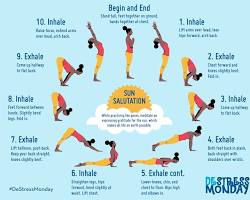Ah, sleep. The reset button for our minds and bodies. Yet, for many of us, it remains a frustrating mystery. We toss and turn, count sheep (or maybe digital sheep on our glowing screens), and wake up feeling like we’ve been run over by a particularly grumpy hippopotamus. But fear not, weary warriors of the night! This guide is your roadmap to a land of restful slumber and invigorating mornings.
Crafting Your Sleep Sanctuary:

Your bedroom is your sleep haven, so make it a haven worth having. Darkness is your friend: blackout curtains, eye masks, even a strategically placed sock over your doorknob’s peephole can banish unwanted light. Aim for a cool temperature, around 60-67°F (15-19°C). Invest in a comfortable mattress and pillows that cradle your curves like a supportive hug. Bonus points for plush bedding in calming colors like lavender or blue.
The Tech Monster
The blue light emanating from electronic screens is the enemy of melatonin, the sleep hormone. Banish laptops, phones, and tablets from the bedroom at least an hour before bedtime. Opt for reading a book, taking a warm bath, or listening to calming music instead. If you must use electronics, dim the screen brightness and switch to night mode. Remember, your bed is for sleeping, not scrolling!
A racing mind is like a runaway train, derailing any chance of sleep. To soothe your inner chatterbox, try relaxation techniques like deep breathing, progressive muscle relaxation, or guided meditations. These practices can help quiet your thoughts and ease your body into slumber. You can also try journaling your worries before bed, letting them out onto paper instead of keeping them hostage in your head.
What you eat and drink?

What you eat and drink can significantly impact your sleep. Avoid heavy meals, caffeine, and alcohol close to bedtime. These can disrupt your sleep cycles and leave you feeling restless. Opt for lighter fare and calming beverages like chamomile tea or warm milk. Additionally, establish a regular eating schedule to regulate your body’s natural rhythms.
Sleep Schedule
Consistency is key to a good night’s sleep. Go to bed and wake up at the same time each day, even on weekends. This helps regulate your body’s internal clock, making it easier to fall asleep and wake up feeling refreshed. If you struggle to fall asleep within 20 minutes, get out of bed and do something relaxing until you feel tired. Don’t lie there in frustration, as this can worsen anxiety and make sleep even more elusive.
Morning light is nature’s alarm clock, signaling to your body that it’s time to wake up. Open your curtains or step outside as soon as you rise. This exposure to sunlight helps regulate your circadian rhythm and boosts your mood and energy levels.
Bonus Tips
- Regular exercise: Physical activity can improve sleep quality, but avoid strenuous workouts close to bedtime.
- Power naps: A short nap (20-30 minutes) can be refreshing, but avoid napping too late in the day, as it can interfere with nighttime sleep.
- Create a sleep ritual: A relaxing routine before bed, like taking a warm bath or reading a book, can signal to your body that it’s time to wind down.
- Seek professional help: If you’ve tried these tips and still struggle with sleep, consult a doctor or sleep specialist. There may be an underlying medical condition affecting your sleep.


















